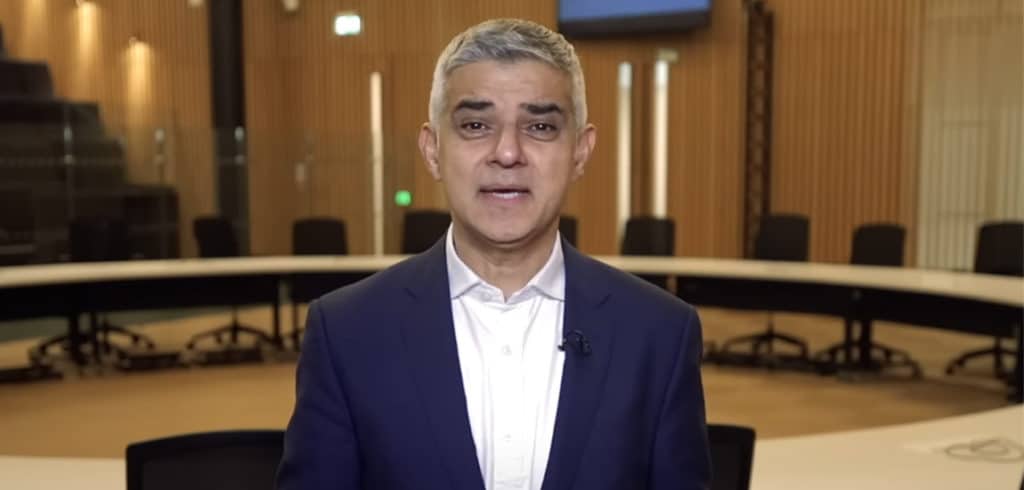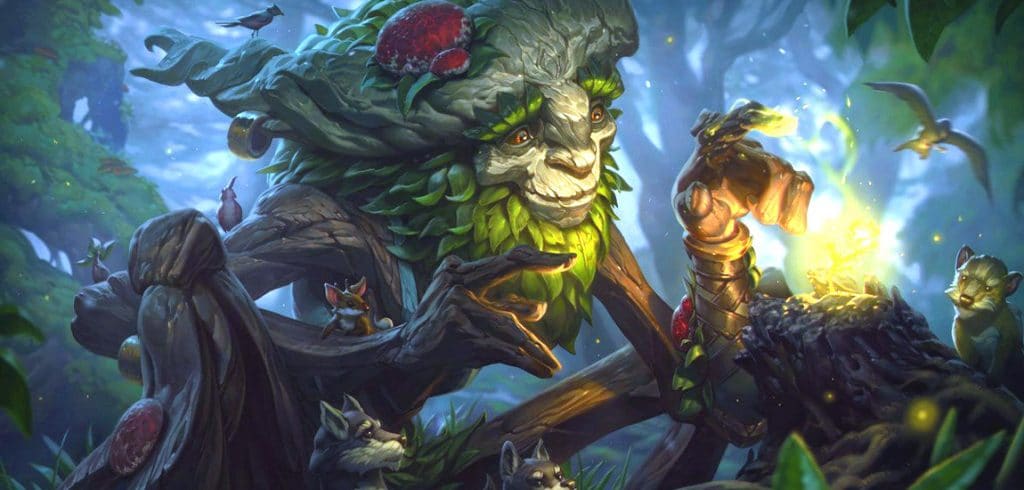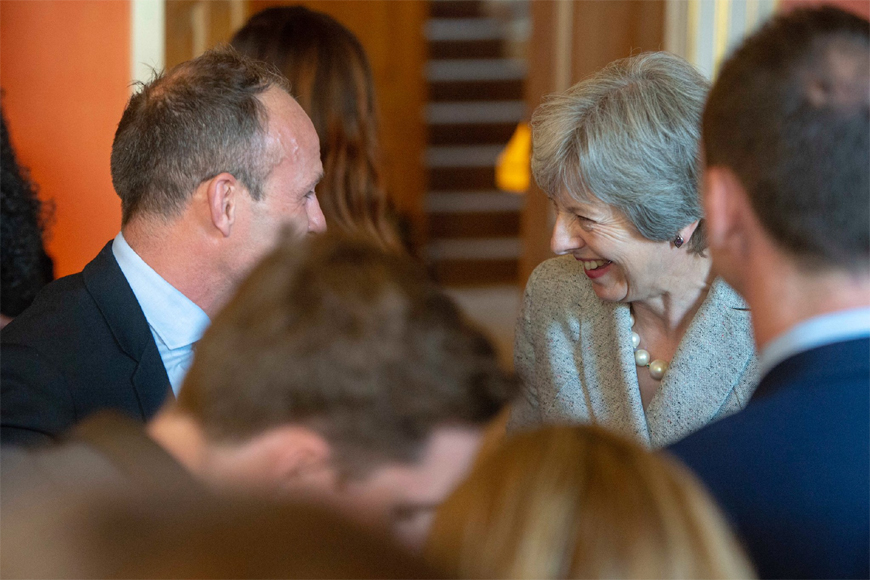Which UK party is best for the games industry in the 2024 general election? We analyse their manifestos, as Ukie’s esports lead welcomes Labour’s creative economy and games plans
Dom Sacco, Senior Editor
Last Updated: 11/02/2026
With the UK 2024 general election happening on July 4th, which political parties have pledged support for the games industry? Dom Sacco looks at their manifestos and speaks to Daniele Schmidt-Fischer (pictured above), esports lead at UK games industry trade body Ukie.
It’s fair to say those in power could have shown greater support of UK esports in recent years.
Yes, we had Margot James attending esports events, meeting the industry and showing her support of esports, but that was five years ago now.
The Mayor of London supports the London Games Festival each year, and often provides quotes in press releases about tournaments like League of Legends Worlds 2024 and MSI 2023, and that’s worth highlighting.
But we don’t have leaders like the former Danish Prime Minister Lars Løkke Rasmussen opening the Blast Pro Series with a speech about the importance, or playing with Astralis, nor do we have someone like the French President Emmanuel Macron inviting French esports talent to the Elysee Palace to thank them for their efforts.
A lack of an esports SIC code, visa support, and general support of esports, still presents challenges to those in the industry.
But general elections present a time for change.
“The next government has a golden opportunity to build a pro-games policy agenda and we look forward to working with them to champion esports at both a national and local level.”
Daniele Schmidt-Fischer, Ukie
Unfortunately, in the manifestos we studied from parties like the Conservatives, Labour, Liberal Democrats, Reform UK and the Green Party, we couldn’t find a single mention of esports.
The creative industries and the wider games industry were referenced, however.
And, Resolve COO Jeff Simpkins said he received the following response from the office of Thangam Debbonaire, Labour’s Shadow Secretary of State for Culture, Media and Sport: “Pleased be assured that we do take the potential growth of this [esports] sector seriously, and if all goes to plan with the election we look forward to discussing further.”
@ThangamDebb is the Labour Shadow Sec for DCMS. Have already emailed her office on behalf of @TheUKETC to talk about esports in the UK, should Labour win the election.
— Jeff Simpkins (@HereLiesJeff) July 3, 2024
We’ll list what we found from the manifestos below, with the help of UK games industry trade body Ukie.
Speaking of which, Daniele Schmidt-Fischer, Ukie Esports Lead, told Esports News UK: “The next government has a golden opportunity to build a pro-games policy agenda and we look forward to working with them to champion esports at both a national and local level.
“We welcome the Labour party’s plan to promote the creative economy and integrate video games into their industrial strategy. It is fantastic to see the sector getting the recognition it deserves and this will only benefit esports going forward.”
Labour

Labour has recognised the video games industry as a driver for jobs and growth, and has committed to implementing Labour’s creative sector plan, focusing on creating more jobs and achieving growth.
In this, Thangam Debbonaire, Shadow Secretary of State for Culture, Media and Sport, recognises games and describes the UK’s content sector – in broadcasting, film and digital content and games – as ‘becoming one of the best in the world in terms of quality and economic success’.
Labour aims to improve access to cultural assets by increasing loans from publicly funded national museums and galleries to communities across the country. Several museums have focused on games industry exhibits, like ‘Power Up’ at the Science Museum, which featured an old-school Halo Xbox LAN.
The party also wants to champion ‘Brand Scotland’, ensuring Scotland’s voice is heard on relevant issues and recognising the country’s excellence in games development, such as being the home of Grand Theft Auto.
Following representation from Ukie, we’re pleased to see the games industry has been recognised as a driver of jobs and growth in the Labour Party’s manifesto.
— Ukie (@uk_ie) June 13, 2024
Games can play a pivotal role boosting the UK's productivity and economic growth through a new Industrial Strategy. https://t.co/rnbVbIMHc7
Labour has also pledged to reform the curriculum to support children in developing essential digital, speaking and creative skills. This includes ensuring that children study a creative or vocational subject until they are 16, and providing a curriculum with a focus on reading, writing and maths. Additionally, Labour will review the balance of assessment methods to better reflect these priorities. Ukie says this is a ‘significant victory’ for them, following its Ukie’s games industry manifesto launch last year, where it called for more creativity in the curriculum, including the implementation of a digital creativity GCSE.
On other areas, Labour will consult on introducing further parental controls over access to social media, including developing effective age verification and parental controls.
Labour says it will support the development of the AI sector, create a National Data Library, and instil safeguards for data-driven public services. It will scrap short funding cycles for key R&D institutions, work with universities to support spinouts, and simplify procurement processes to support innovation. A ‘National Wealth Fund’ will support investments including those in digital infrastructure.
Conservatives

The Conservative Party Manifesto includes one mention of video games, highlighting plans to deliver a ‘dedicated flexible coordination service so that everyone who wants to work in the film, TV, gaming, and music sectors can work on live productions while benefiting from at least 12 months of secure training’.
Controversially, The Government is set to cut funding for BTECs that overlap with similar T-level subjects, including the Esports BTEC. This could lead to the Esports BTEC being scrapped.
In other education pledges, the Tories say they will close ‘rip-off’, ‘Mickey Mouse’ university courses that have low outcomes for students, provide bonuses of up to £30,000 tax-free over five years for new teachers in priority areas and key STEM and technical subjects, create 100,000 more apprenticeships in England every year by the end of the next Parliament.
Other commitments from the Conservative Party include creative tax reliefs, protecting creative sectors against AI, a consultation on introducing further parental controls over access to social media, including age verification and parental controls in partnership with other countries, and an increase in public spending on R&D to £22bn a year in the next Parliament and maintaining tax reliefs for R&D, worth £280m a year.
The Tories also plan to introducing a binding, legal cap on migration for work and family visas to protect public services while addressing the skills needs of businesses and the NHS.
Liberal Democrats
The Liberal Democrat manifesto doesn’t mention video games directly, but says the party will promote creative skills, addressing financial barriers for small businesses, and supporting modern patent, copyright, and licensing rules.
Creative enterprise zones will aim to grow cultural output across the UK, while the Lib Dems want to rejoin the European Single Market and apply to participate fully in Creative Europe, a funding programme supporting cultural, creative, and audiovisual sectors in Europe.
A curriculum reform will include arts subjects in the English Baccalaureate and empower Ofsted to monitor the curriculum to ensure the inclusion of subjects like art, music, and drama.
They want to expand the provision of extracurricular activities, including coding, starting with a new free entitlement for disadvantaged children, and implement an immigration salary threshold, replacing the salary threshold for immigration with a merit-based system for work visas and working with employers to address specific sector needs as part of a long-term workforce strategy focused on education and training.
Oh, and fun fact: Insomnia Gaming Festival founder Craig Fletcher once ran for Parliament.
He also told us that Layla Moran, Liberal Democrat candidate for Oxford West and Abingdon at the 2024 general election, has attended Insomnia multiple times over the years.
Reform UK
The Reform UK manifesto has no section on the creative industries specifically, but it has pledged to reform the BBC, saying: “The out-of-touch wasteful BBC is institutionally biased. The TV licence is taxation without representation. We will scrap it. In a world of on-demand TV, people should be free to choose.”
It also plans to implement tax relief of 20% on all independent education, scrap interest on student loans and cut funding to universities that ‘undermine free speech’, while forcing universities to provide two-year undergraduate courses.
It has also pledged permanent exclusions for violent or disruptive students, by doubling the number of Pupil Referral Units ‘so schools can function safely’, and wants to ban transgender ideology in schools.
“The government’s Free Speech Act is toothless. Allowing political bias or cancel culture must face heavy financial penalties,” Reform UK said. “No gender questioning, social transitioning or pronoun swapping. Inform parents of under 16s about their children’s life decisions. Schools must have single sex facilities.”
Sonic Boom pic.twitter.com/rcNQCHqocE
— Dom Sacco (@Dom_Sacco) June 5, 2024
Reform UK also plans to reform the Online Safety Bill, saying: “Social media giants that push baseless transgender ideology and divisive critical race theory should have no role in regulating free speech.”
Also included in Reform’s policies are plans to launch an inquiry into social media harms and a review of the Online Safety Bill. That puts the onus on social media companies to remove illegal content and protect children on their platforms, with powers given to Ofcom to fine those that fail to do so.
The Green Party
The Green Party manifesto has no mention of the games industry in it, either, but there is a pledge to invest £5bn in community sports, arts and culture, with elected greens promising to support local grassroots sports clubs, music and art venues.
It also wants to ontroduce a Digital Bill of Rights that establishes the UK as ‘a leading voice on standards for the rule of law and democracy in digital spaces’.

The greens hope to invest an extra £5bn over five years for local government spending on arts and culture to fund keeping local museums, theatres, libraries and art galleries open.
It also wants to ‘protect the night-time economy through a review of planning regulations and giving local authorities the powers to ensure there is space for cultural life’, and exempt cultural events, including everything from theatre and museum tickets to gigs in local pubs, from paying VAT. And it wants to give local authorities discretionary powers to exempt socially and economically essential local enterprises from business rates.
Green Party co-leader Adrian Ramsay said: “Our cultural and heritage venues have been victim to savage government cuts over the years. That’s why the Greens are pulling back the curtain to reveal our offer for arts, heritage and culture. We want to give local authorities a £5bn boost over five years to help keep local museums, theatres, small music venues, libraries and art galleries open and thriving.
“And since Brexit, British musicians have faced costly bills to obtain visas if they wish to play in some EU countries. Greens want visa free travel to the EU for musicians and will press the next government to negotiate an arrangement for this at the earliest possible opportunity.”
Other sources to check out ahead of the 2024 UK general election

Creative UK held a UK general election virtual hustings for the cultural and creative industries recently, where representatives from different political parties answered questions on key issues facing the sector.
And George Osborn, who puts together the excellent Video Games Industry Memo email newsletter, recently published a newsletter where he shared his views on the different parties in relation to the UK games industry.
“If you’re wondering which of the two main parties the industry will be hoping emerges victorious, it is Labour,” he said. “The party’s programme for government is much more closely aligned with what the games business needs on a practical and philosophical level.
“And while it will have plenty on its plate were it to come to power in July, a Keir Starmer led administration looks like it’ll be a better bet for the long term future of the sector than anything the Conservatives can currently offer. Sorry Rishi *shrugs*.”
And voter registration campaign ‘Give An X‘ recently reached guests at the ESI London 2024 esports industry conference, with chocolate bars encouraging people to vote.
The goody bags at #ESILDN feature a @TonysChocoUK_IE chocolate bar encouraging people to vote in the UK
— Dom Sacco (@Dom_Sacco) June 13, 2024
It’s part of a voter registration campaign by @mylifemysay pic.twitter.com/J7m2uzGgPO
After publishing this article, Paul Sulyok, the Founder and CEO of gamers social commerce platform Green Man Gaming, sent us a statement calling parties to review their position and policies for the games industry.
The statement was preceded by some context, including the proposed departure of Keyword Studios from the London Stock Exchange’s AIM market to new foreign owners, and the decision by PlayStation to axe 900 jobs and close its London studio, being ‘part of a wider worrying trend in the country’s gaming industry’. The government, regardless of the party who will lead it, must stop matters from getting worse.’
He said: “The games sector is not being adequately supported. The UK risks losing ground to countries that work harder to support domestic gaming industries and to attract top talent, such as Canada. This could spell disaster for our domestic industry.
“The UK is simply not properly acknowledging its brilliant and lucrative gaming sector. It is something that we already excel at. We do not have to build this industry: it already exists and must simply be supported so that it can continue to thrive.
“With the election ahead of us, we are delighted that all the major parties recognise the contributions of the gaming industry. However, this [including Labour’s proposals] does not go far enough. We will need strong and decisive action to ensure that our leading position on the global stage is maintained.”
Paul Sulyok, Green Man Gaming
“The UK gaming industry is not asking for a handout. We must fix the funding model, which has broken down. Far too much money saved in UK pension funds is going abroad – instead of backing our world-leading creative entrepreneurs.
“Despite this country’s enormous gaming talent – in storytelling and computer engineering – with hundreds of excellent studios dotted around the country, the growing problem in the UK is a lack of liquidity, and the necessary muscle in our financial sector to allow gaming businesses to thrive.
“UK gaming businesses which are looking for growth may soon find themselves attracted en masse to US capital markets. If we are not careful, we will not only bleed gaming talent to North America, but gaming companies too.”
The BBC has also spoken to parties about their views on the games industry in this article.
There’s also more in this piece from Ukie below:
🎮 The next government has the chance to build a pro-games policy agenda that backs British Indies and creates a positive growth environment for the wider sector.
— Ukie (@uk_ie) June 20, 2024
In this piece, we explore why an increased @ukgamesfund pot can unlock this potential.https://t.co/FKXIHjjuaM
Lastly, whatever you think of the parties above, please get out and vote!
Our election system and party options might not be the best in the world, but let’s use our right to vote and have our say.
Related article from the archive: Interview with Shadow Culture Minister Alex Davies-Jones at Westminster Games Week
Must-Read Casino & Betting Guides
Check out our featured gaming guides to find top UK casinos, no verification sites, fast withdrawal platforms, and more.
- Best Online Casinos in the UK
- UK Sports Betting Sites
- Best Esports Betting Sites
- Best Non Gamstop Casinos
- Best Crypto Casino Sites
Dom Sacco, Senior Editor
Dom is an award-winning writer and finalist of the Esports Journalist of the Year 2023 award. He has almost two decades of experience in journalism, and left Esports News UK in June 2025. As a long-time gamer having first picked up the NES controller in the late '80s, he has written for a range of publications including GamesTM, Nintendo Official Magazine, industry publication MCV and others. He also previously worked as head of content for the British Esports Federation.
Stay Updated with the Latest News
Get the most important stories delivered straight to your Google News feed — timely and reliable





From breaking news and in-depth match analysis to exclusive interviews and behind-the-scenes content, we bring you the stories that shape the esports scene.
Monthly Visitors
User Satisfaction
Years experience











